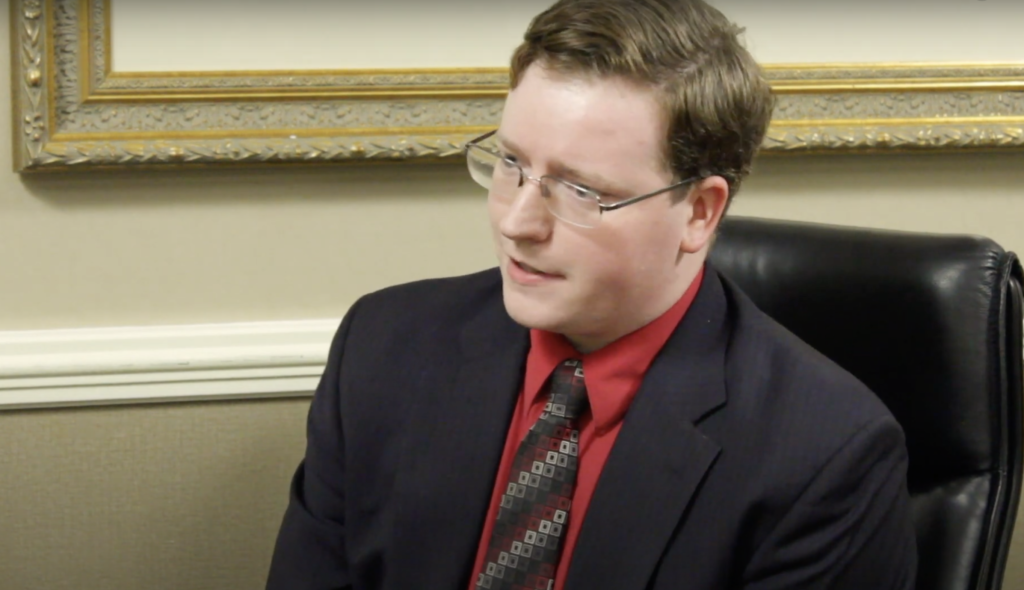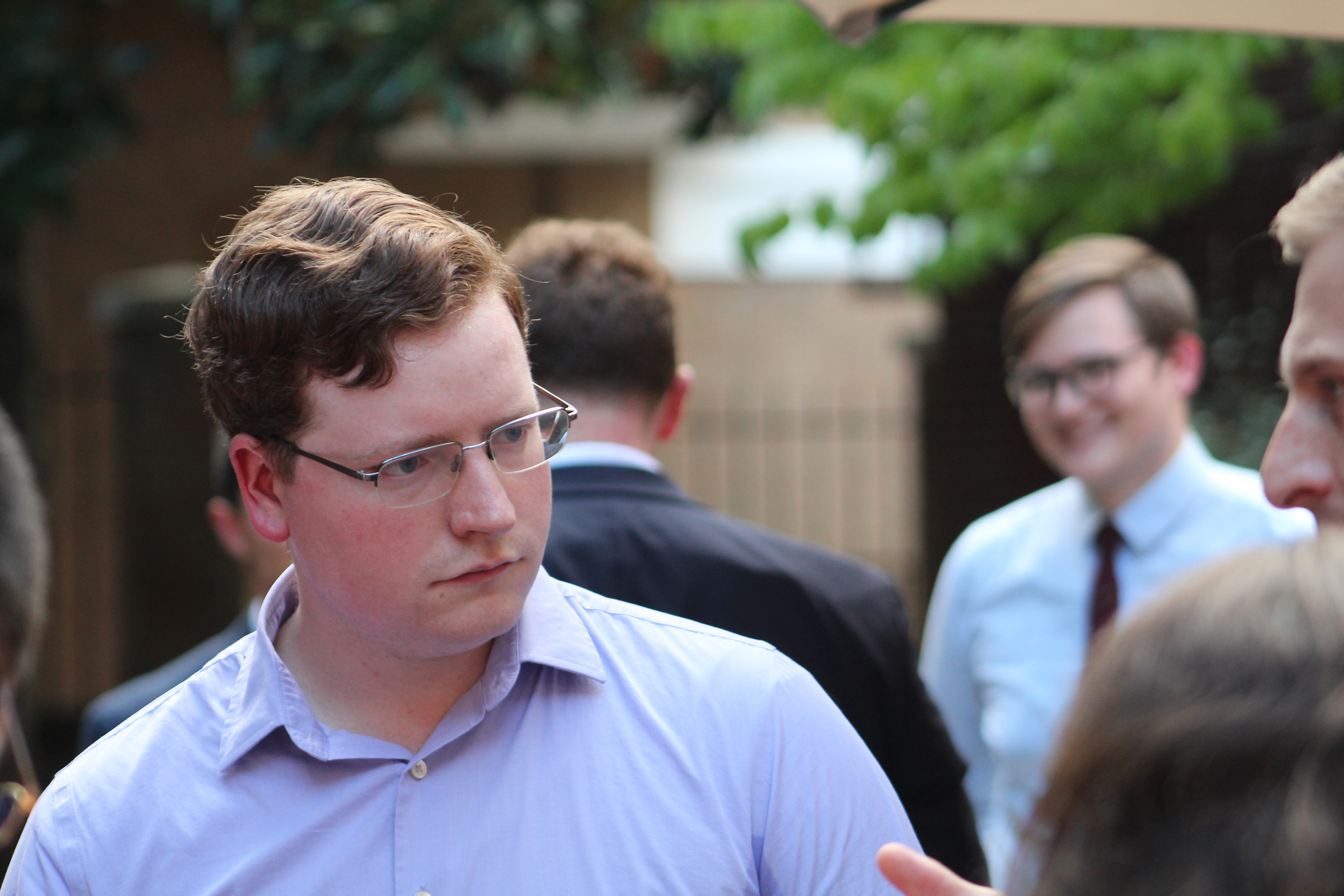×
Search
Remembering Holden Tanner ('20)
By The James Wilson Institute •
Posted on May 22 2022

JWI mourns the tragic death of Holden Tanner, 2020 James Wilson Fellow. In this time of grief, we offer our deepest condolences to all who knew him and pray for the repose of Holden's soul. Please also pray for strength for his wife and children.
Hadley Arkes, JWI Founder and Director, shares the following:
I don’t think we’ve recovered even yet from the heartbreak and disbelief of losing Holden. He seemed lost to us in a flash. He was in fact a kind of incandescent presence, lighting up everything—in joy, in wit and devotion from the first moments he was with us. It’s rare that we take in a 3L in our Fellowship and seminar, but Holden seemed seasoned and learned beyond his years. He had already led a student reading group at Yale, a group of 30-40 students in a seminar actually counted for credit. And there he found himself setting out for his friends some critical writings new to them on conservatism and natural law.
He was precocious, one might say, in the style of people home-schooled by parents who were not afraid to give their son readings that ran beyond his supposed grade level. They fed a child open to all of the wonders of things to be learned, in literature, history, politics, philosophy, and—following the life of his parents—theology. He told me the story of his mother plunging in to help a bankrupt YMCA, struggling to survive with its classes in bible studies and martial arts. Holden was 13 at the time, and he became her right hand in that project. He took on the task of teaching karate, and he would venture further into bible studies and the teaching of Sunday school. And so he would also give us the rare case of a Baptist earnestly teaching natural law as he moved further into a ministry of his own. One lesson here, he said, was that people who take on stronger obligations to those within their reach, turn out also to be people more willing to make sacrifices, in the common good, for people they do not know.

In our seminar, just two years ago, in 2020, he was the only Fellow still in law school, and yet he instantly won the respect and hearts of the older men and women in the group. He was ready to plunge in right away as we launched our new journal, Anchoring Truths. He had given us, in the recorded comments he offered, one the finest appreciations of this project in natural law. And in the pieces he did for us, he showed a breadth of understanding that already moved along the lines that Adrian Vermeule is offering now in a sweeping, new view of our jurisprudence. Holden was only 26, and yet again he showed a kind of wisdom beyond his years. For he saw deeply and clearly, from another angle, what Adrian has been seeking to explain. Holden caught, in the way Adrian has, that the natural law really underlies our law in a manner so fundamental that it is hardly noticed any longer. The positivists will seek out a “rule of recognition” as the prelude to their work, but from the perspective of natural law, as he said, “all legal rules are derivative of the moral force of [the] primary rules,” or anchoring truths. “Even the obligation to obey the positive law flows from them.” That is the point I heard made once in a question from a student in the Blackstone group, who was bringing that news at the time to a former clerk to Justice Scalia.
One of the key mistakes in conservative jurisprudence, as Holden saw it, is that the Originalists and positivists were all too ready to assume that the common law was simply “judge made law.” They began with the premise that there really were no anchoring truths to be known, and so as the line went, when a judge went beyond the text of the Constitution he was simply “looking inside himself.” When the conservatives drifted from their confidence that those truths were there, they were driven to find a “theory of reading texts.” But now, as Holden said, “the ascendant conservative legal movement has a coherent theory of interpretation; it lacks everything else.” Holden grasped already what we were to teach and explore in this James Wilson project, and he was certain to be one of the most gifted writers and lawyers on our side in the years ahead. We say that we have a deep sense of our loss because we’ve had such a clear sense of the depth of what he brought to us. We can only read again what he has left us, keep the memory of him with us, and look for the young people who will carry on that work he loved.
Holden was a gentleman and scholar in full, one of our very best Fellows. We share an interview with Holden from last year along with two articles Holden published at Anchoring Truths. We hope these can give a glimpse into his scholarship and his bright legal mind.
http://commentary.jameswilsoninstitute.org/.../interview.../
×
